
If any scientists out there are planning on building a lab in space, they might want to check out the new sci-fi drama Ad Astra. It may compel them to think twice about bringing along a very specific mammalian species along for the ride. For the rest of us, this is a low-key but tense and engaging space drama that effectively combines thrills with personal introspection on the meaning of life and, to a lesser extent, dealing with family grievances.
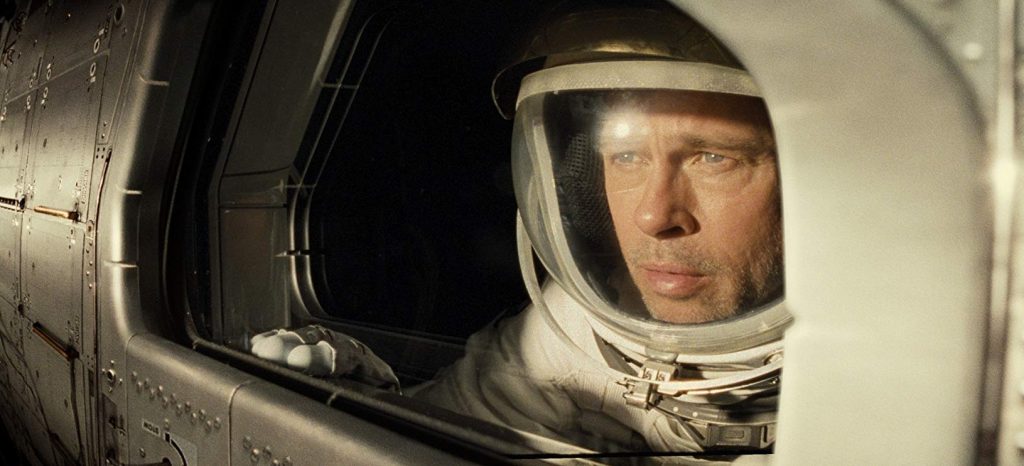
The film is set in the future with Earth under dire threat due to a series of cataclysmic electrical storms coming from Neptune. Not long after, the military approach and fill in astronaut Roy McBride (Brad Pitt) on some of the surprising details. They believe that the lead’s scientist father Clifford (Tommy Lee Jones) may have survived an ill-fated mission to the edge of the galaxy and could be responsible for the energy bursts. Believing Roy to be austere and unemotional with the capacity for dealing in a direct manner, Colonel Pruitt (Donald Sutherland) asks him to travel to Mars and relay a message to his dad in the hopes of receiving a response. However, the trip itself poses more danger than expected and Roy begins to question the motives of his father, his superiors and his own life choices.
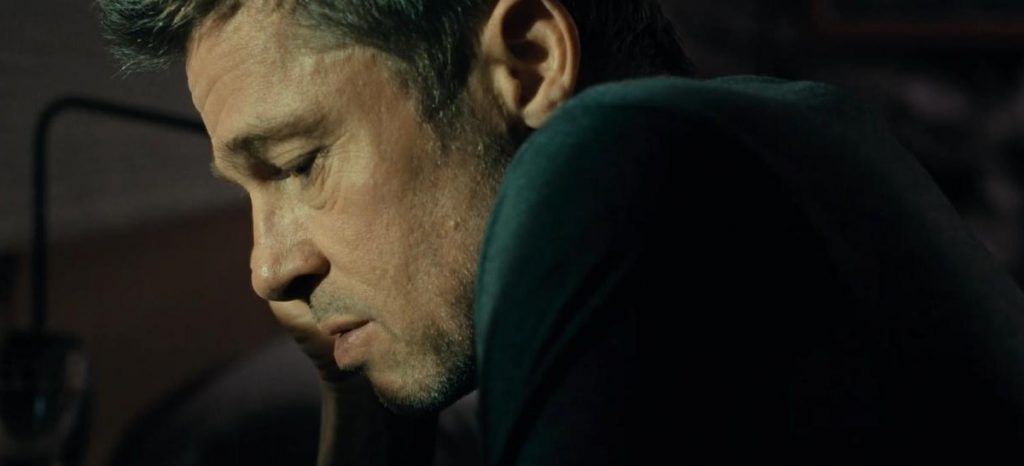
Roy is an incredibly understated character and some credit should be given to the lead actor for keeping viewers interested in his plight. Despite the numerous threats encountered, he barely raises an eyebrow. It’s a technique that could have killed the suspense, yet the mystery presented, the inherent dangers of the mission and Roy’s ever-growing concern and doubts about the motivations of all involved manage to keep the tension high and the plot moving along even when the character is being self-reflective. He’s harboring a great deal of resentment towards his parent and despite insisting otherwise, is clearly stressed by a possible interaction.
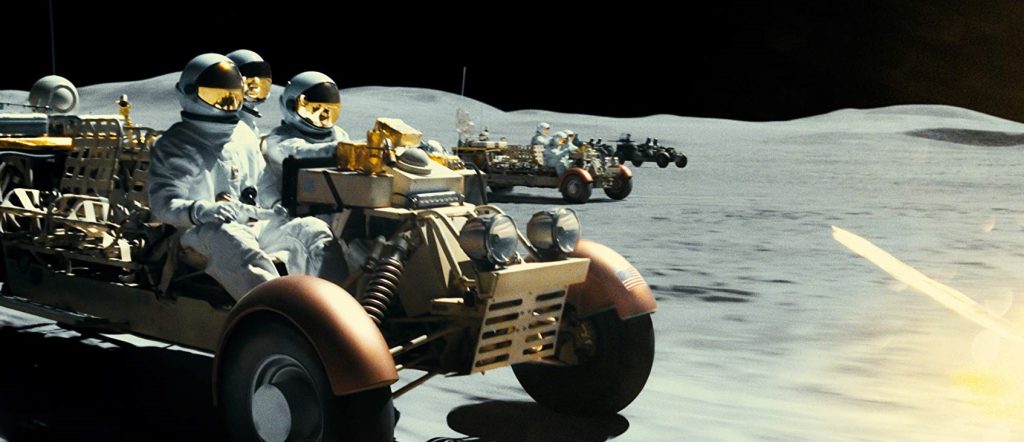
Visually, the movie is incredible and includes spectacularly convincing futuristic environments, particularly on the Moon, which Roy visits on his way to Mars. It’s here where the filmmakers add some unique and interesting story touches, including recognizable business sponsorships and advertising on the base, alongside the threat of warring factions and conflicts across the surface of the satellite. It’s handled so authentically that these striking images linger in the brain and add believability to the scenario.
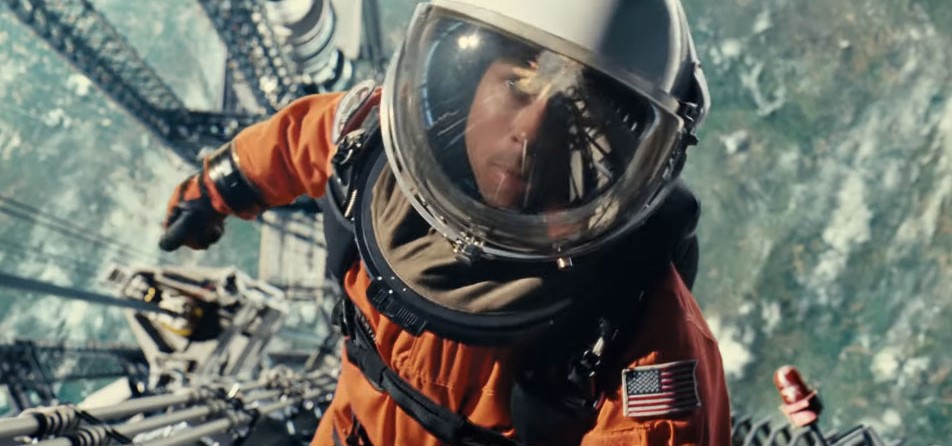
And when things go sideways and action needs to be taken, the results are equally exceptional. This film features four or five standout scenes filled with both thrilling and frightening twists and surprises. This includes enduring a hair-raising disaster on a towering structure, a dynamic moon buggy chase, a tension filled exploration through a seemingly abandoned spacecraft and many others. The gravity-free environments allow the shots to hold, and slow in the middle of conflict, raising tension during the height of the drama. Visual and sound effects are top-notch and the environments lensed by cinematographer Hoyte Van Hoytema (Interstellar, Spectre, Dunkirk) make a lasting impression.
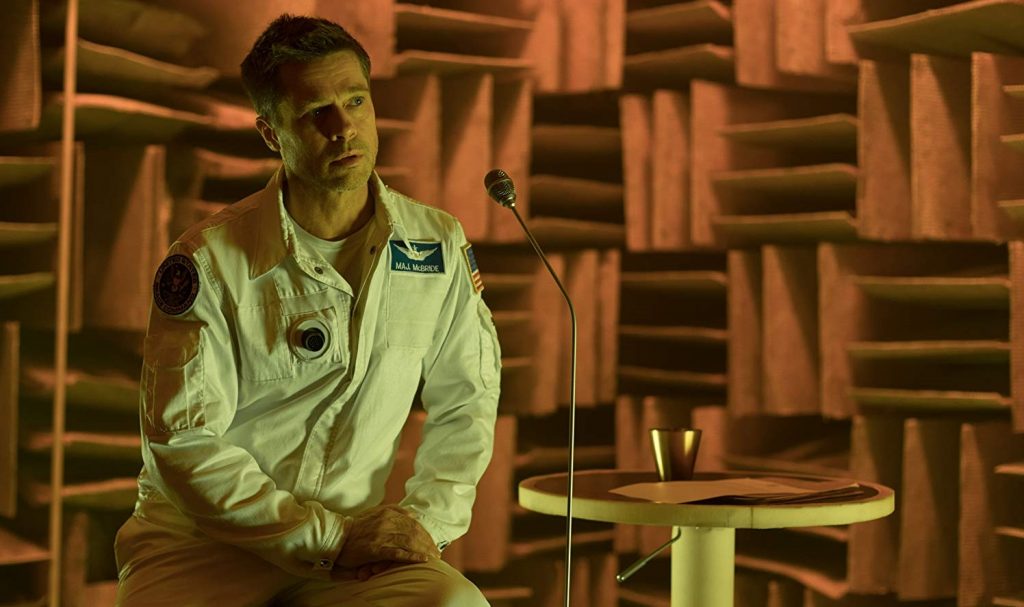
Admittedly, not all elements of the film work equally well. Roy’s relationship with his ex-wife Eve (Liv Tyler) is given short shrift… to the point where one wonders why she participated in the project at all. Another issue with the film relates to the mannerisms of the lead character and his propensity to always explain his thoughts clearly and succinctly. Events during the trip do have a dramatic impact and change the way he views the world, although it’s nothing unexpected. The narration is appropriate to the character, although his voice-overs about living in the moment as well as connecting with the people and world around him is presented in a little too direct and explicit a fashion. In the end, the emotional revelations for Roy don’t make as big an impact as they could have.
Still, Ad Astra is an absorbing trip overall and its problems don’t detract dramatically from the overall experience. There are a few bumps in this journey to the stars and one might eventually know where they are headed, but the performances and sights are, at times, a wonder to behold.


